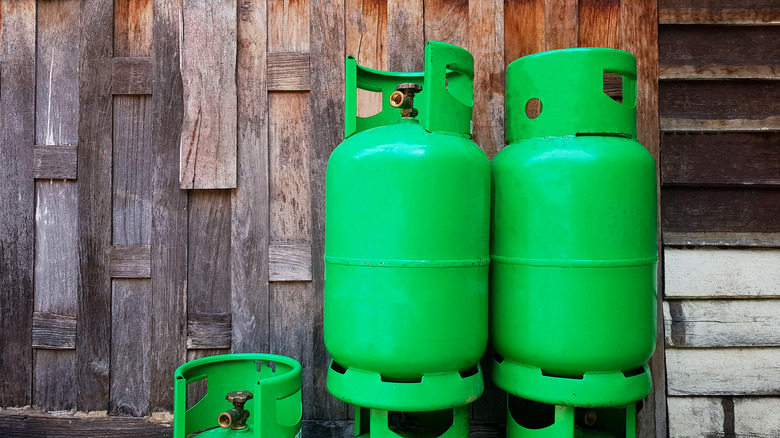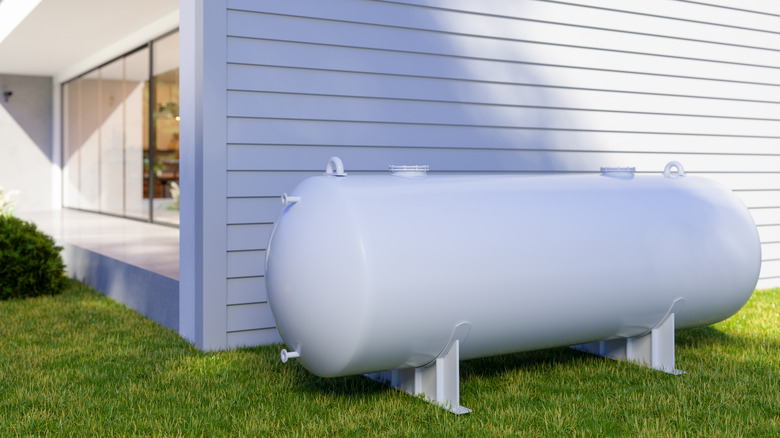The Dangers Of Storing An Extra Propane Tank In Your Shed (& What To Do Instead)
Your shed may be the perfect place to store your most essential gardening tools, bikes, logs, outdoor furniture, and other stuff from around the house. However, this doesn't mean it's the answer to all your storage needs. For example, you should find a different place for that extra propane tank lying in your shed. Propane is highly flammable and can cause a fire when exposed to sunlight, heat, or ignition sources. In certain circumstances, the gas can accumulate in confined spaces, leading to asphyxiation.
Also, note that propane gas is heavier than air. This allows it to build up quickly in enclosed spaces and travel along the floor to electrical circuits or other ignition sources. Such things usually happen when there's a propane tank leak or the valve is partly open. Even if your shed is partially walled, the gas could ignite or explode when the outdoor temperature rises. While these incidents are rare, you shouldn't take unnecessary risks.
There's a right way to store propane tanks
Take that extra propane tank out of your shed and store it outdoors, away from sunlight or other heat sources. Choose a cool, well-ventilated area where the temperature doesn't exceed 120 degrees Fahrenheit. Place it on a flat surface at least 10 feet from fire starters, charcoal briquettes, solvents, gasoline tanks, and other flammable materials. Similarly, keep the tank away from your BBQ grill or outdoor oven. Consider getting a propane cabinet or cage. These storage solutions have mesh panels and other safety features that may come in handy. For example, you can lock the cabinet doors to prevent your kids from opening the valve or knocking the tank over while playing outdoors. Always store the propane tank upright to protect the valve from physical damage and maintain a safe pressure.
Apart from that, garages aren't a safe storage option for your propane tank, and neither is your attic, basement, or carport. Simply put, don't store it inside, no matter how well-ventilated the area is. And yes, it's safe to keep it outdoors in the winter as long as the temperature doesn't go below -40 degrees Fahrenheit. Remember to fully close the valve and install appropriate safety signage if necessary.

